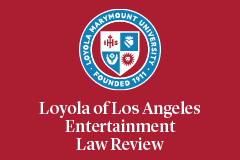Abstract
The college sports industry is must-see TV for millions of fans across
the country and generates billions in revenue every year. That money accrues
to coaches, universities, conferences, and the National Collegiate Athletic
Association (NCAA), which orchestrates it all. Until recently, however, not
one cent went to the players, outside of an academic scholarship that did not
exceed the cost of their schooling. Commentators have long called for the
NCAA to reform its student-athlete compensation restrictions. After decades
of inaction by the NCAA, California passed SB-206 in September of 2019
to allow its student-athletes to receive compensation from third parties for
commercial use of their names, images, and likenesses (NIL). Several other
states soon followed, and as a result, on July 1, 2021, the NCAA ceased enforcing
the NIL compensation restrictions in its bylaws. Unfortunately for
the NCAA, its bylaws cannot override state law. States may continue to experiment
if they wish to convey benefits to student-athletes above and beyond
those granted by California’s law or any subsequent NCAA rule
changes.
Until Congress passes federal legislation, the NCAA’s game plan may
be a Dormant Commerce Clause (DCC) challenge to state compensation regimes.
This Article is the first piece of legal scholarship to survey the landscape
of state student-athlete compensation legislation and apply the
Dormant Commerce Clause to the student-athlete compensation issue. This
Article concludes the state student-athlete NIL regulation violates the extraterritoriality
principle of the Dormant Commerce Clause because—unlike
state internet regulation, for example—it regulates the NCAA’s conduct
wholly outside the state’s borders. The NCAA is a nationwide natural monopoly
ripe for federal, not state, regulation. Accordingly, Congress should
step up to the plate and provide student-athletes the opportunity to earn the
compensation they rightfully deserve while preserving uniform rules among
competitors, which are essential to the existence of any sports league.
Recommended Citation
M. Ryan Kearney,
When the States Step Out of Bounds: State Regulation of Student-Athlete Compensation and the Dormant Commerce Clause,
42 Loy. L.A. Ent. L. Rev. 221
(2022).
Available at: https://digitalcommons.lmu.edu/elr/vol42/iss3/2


